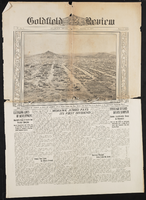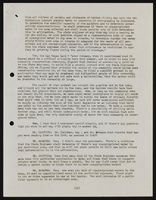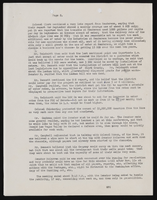Search the Special Collections and Archives Portal
Search Results
Frey, James H. (1941 June 29-)
James Frey was born in Eureka, South Dakota, in 1941. His father worked in creamery and his mother was a registered nurse. When Frey was nine, the family, including his twin sister, relocated in Sioux Falls where his dad was plant manager for a dairy. He joined the YMCA in the fourth grade and ended up working for them until around the age of 22. He attended Augustana College in Sioux Falls, graduating with a major in sociology and a minor in history. After graduation, he worked for three years at the YMCA in Sioux Falls as program director.
Person
Corporate records, 1920 to 1992, 1927 to 1979
Level of Description
Scope and Contents
The corporate records (1920-1990) for Hughes Productions consist of administrative, distribution, financial, and legal records, as well as records from the Motion Picture Association of America and United Artists Corporation and records pertaining to unproduced works.
Administrative records contain correspondence, as well as vault inventories, assets list, and personnel files. Distribution records contain agreements, correspondence, and information pertaining to The Outlaw's ban. Financial records include ledgers, correspondence, invoices, and international profit reports. Legal records include contracts for actors and screenwriters, as well as correspondence, agreements, and affidavits pertaining to loan information and court case proceedings.
Motion Picture Association of America (MPAA) records consist primarily of weekly reports from the MPAA detailing film title registration reports either held or withdrawn, as well as memoranda. United Artists Corporation records include contract analyses, settlement statements and ledgers detailing The Outlaw's domestic and international earnings. Unproduced works contain screenplays, synopses, story treatments, right's agreements, and correspondence pertaining to stories sent to Hughes Productions.
Archival Collection
Collection Name: Howard Hughes Film Production Records
Box/Folder: N/A
Archival Component

Transcript of interview with Dorothy George by Claytee White, October 13, 2003
Date
Archival Collection
Description
After serving as a nurse in World War II in Hawaii, Okinawa and Japan, Dorothy returned home to Chippewa Falls, Wisconsin. She experienced a particularly bad winter and she set out for California but stopped in Las Vegas to visit the family of her traveling companion, a girlfriend from her home town. The girlfriend returned to Wisconsin and George applied for a nursing license and got it within three days. She never left. Dorothy met her husband while working the night shift at Clark County Hospital. He would come in regularly to assist his patients in the births of their babies. Their occupations and their service in World War II drew them together in a marriage that has lasted over fifty years. From 1949 to this interview in 2003, Dorothy George has seen Las Vegas grow from a town that she loved to a metropolitan area that is no longer as friendly. She reminisces about the Heldorado parades, family picnics at Mount Charleston, watching the cloud formed by the atomic bomb tests, raising six successful children, leading a Girl Scout Troop, and working in organizations to improve the social and civic life of Las Vegas.
Text






